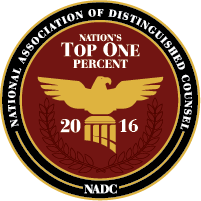Environmental Crimes
Federal environmental crimes consist of activities which are alleged to be harmful to the nation's ecological system and/or wildlife resources. For example, certain pollution activities, such as failure to comply with asbestos removal requirements, participation in toxic spills, and unauthorized "dumping", may constitute federal environmental crimes where there is a "pollution event" coupled with criminal intent, such as knowing conduct, failure to comply with workplace safety standards, or intentional falsification of records. Illegal hunting may also constitute a federal environmental crime where there is a violation of a state, tribal, or foreign wildlife law coupled with the movement or trade of wildlife across U.S. borders.
Federal environmental crimes are investigated and prosecuted by several government agencies, including the Environmental Section and Environmental and Natural Resources Division of the Department of Justice, the U.S. Fish and Wildlife Service, and the National Oceanic and Atmospheric Administration. Environmental crimes are punishable by significant civil and criminal penalties under a number of federal statutes, including the Resource Conservation and Recovery Act, the Clean Air Act, the Lacey Act, and the Endangered Species Act.
Given the high stakes involved, it is imperative that individuals facing federal environmental criminal charges choose an attorney with the knowledge and experience necessary to defend such a case. I have chosen to focus my practice on White Collar Crimes, including environmental matters. I fight hard to enforce the rights of my clients, and I believe in the integrity of that fight.
Over the last 40 years, I have earned a successful track record in high stakes white collar matters and have argued before the United States Supreme Court as well as other federal courts throughout the country.
If you have questions or concerns about a federal environmental crime matter, I invite you to contact me directly to discuss it at 888-700-1555 or Patrick@MullinDefense.com. You will discuss your concerns with me personally—never an associate or a paralegal. In addition, you should know that your contact with me, and with my firm, is privileged under the law, regardless of whether or not you decide to retain my firm to represent you.







